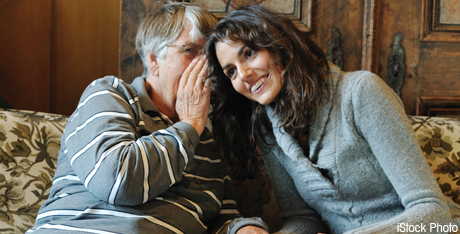Each of us has our own full and rich life story, built up over the many decades we have lived. I like to think of this as the story of the generations within us, successive versions of ourselves that have lived, loved and learned. With this history, why is it so hard to communicate with people of other ages?
We act surprised that young people don’t seem to understand older adults, but let’s be honest: we don’t always go out of our way to understand them either. How often have you caught yourself judging children or adolescents for what we once were?
Over the years, the body changes; it declines in many ways, yet if we are learning, the mind/psyche grows.
We talk of the independent-minded Generation X or the overly plugged-in Generation Y. We speak of these generations as if they are so different from us. We insist they aren’t like we were at that age: we worked hard, we had values.
The thing is, if they live long enough, the GenXers and GenYers will get older. And the old were once young. So why do we have such a hard time understanding each other?
The key lies in taking advantage of our own experience of the generations within us. We can work at knowing ourselves better, to better understand other generations. As we accept and come to terms with who we are as an older person, we develop the elder within us and find new ways to enjoy relationships with people of all ages.
Coming to terms with our older selves certainly has its challenges. One woman in our discussion group admitted to preferring the company of people her own age because she was jealous of younger people. “They can do things I can’t do anymore,” she says. Younger people may seem more beautiful, more agile, more clever than we are. We are no longer all those things that we used to identify ourselves with: the careers we once had, the parents we once were, the strong, youthful bodies, the athletes. Coming to terms with who we are, truly, is part of the work of becoming an elder and helps us to be loving and compassionate to all the generations within and around us.
Coming to terms with our older selves certainly has its challenges.
There are books available that describe life as a series of opportunities for us to learn and grow. As such, we can learn and grow by reviewing our life experiences, recalling who we were and how we felt as they happened. I can re-experience my 30s and gain more understanding of them from my 56-year-old perspective. With this new understanding I can increase empathy and insights and heal old hurts.
It’s kind of like fishing in the past. You come up with all sorts of thoughts and memories, and then have to place them in some kind of jigsaw puzzle that makes sense. As we age, the puzzle can take a more solid shape.
I like to think about all the parts of me. The girl from the first seven years of my life is very much with me; she is optimistic, eager, proud of tying her shoes and loves everyone. My older school-age girl remembers a more difficult experience. Relationships are more complicated, long division is hard, and the people around me are different. I still have those lingering traces where I don’t know why, but I don’t quite fit in. Remembering this girl gives me an empathy toward others who may be feeling out of sorts in their own lives.
I can re-experience my 30s and gain more understanding of them from my 56-year-old perspective.
Over the years, the body changes; it declines in many ways, yet if we are learning, the mind/psyche grows. As the external appearance changes with age, we have a magic opportunity to become inwardly more beautiful. Try asking your friends if they would like to be 20 again. We might delight in having that young, fit body again, but not at the price of giving up what we now know. What we have learned during our lifetime seems far more important than what we’ve lost along the way.
If we have learned anything along the way, let’s reach across the generations, whether they are the generations within ourselves, or those of our friends and family of other generations. Let’s treat each other with the compassion and understanding that comes with the wisdom of understanding ourselves. Let’s take an interest in the well-being of other generations within or around us. In doing this, we are doing our own growing work of accepting the losses and embracing the increased self-understandings that come from a life rich in experiences. In this, we start on our way to becoming a true elder.




Sources
To learn more about the phases of our lives, consider these two great books on the subject.